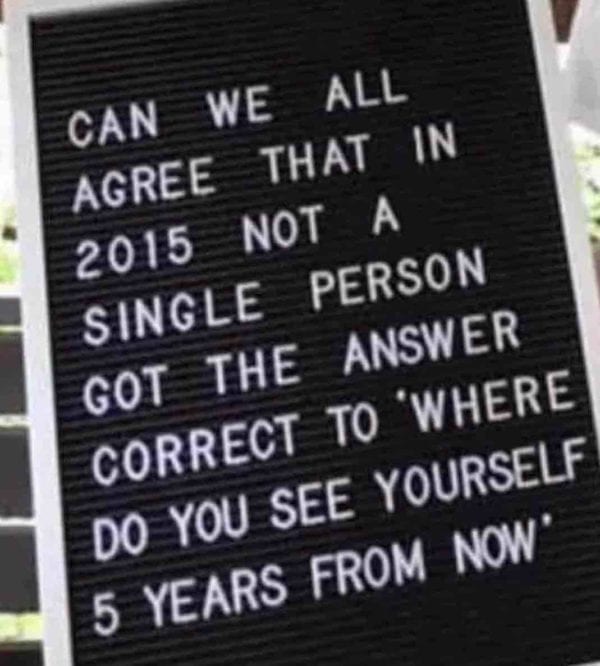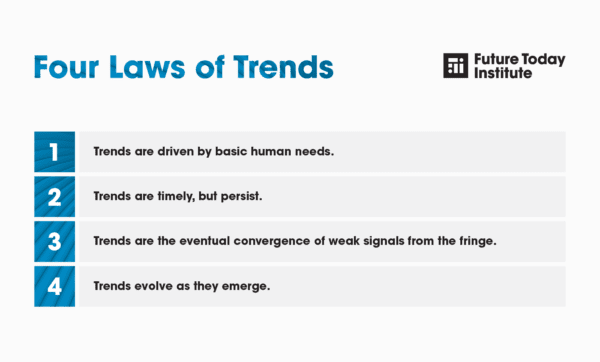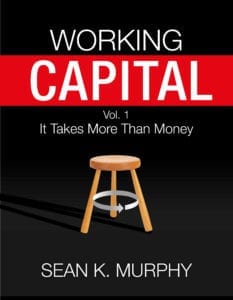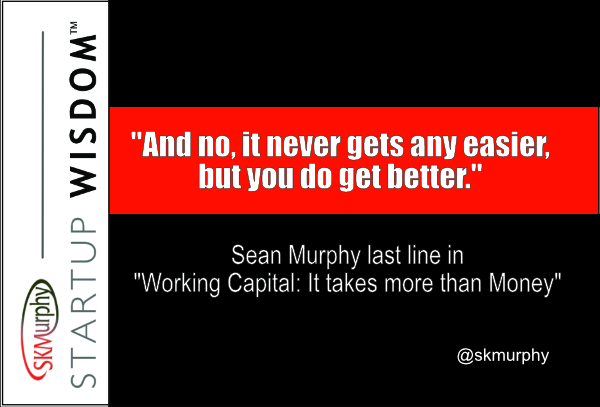Quotes for entrepreneurs curated in December 2020. My themes for this month are two sides of the impact of change: resilience (improvements enabled by change) and Cardwell’s Law or how those who benefit from the status quo inhibit innovation.
Quotes for Entrepreneurs Curated in December 2020
I curate these quotes for entrepreneurs from a variety of sources and tweet them on @skmurphy about once a day where you can get them hot off the mojo wire. At the end of each month I curate them in a blog post that adds commentary and may contain a longer passage from the same source for context. Please enter your E-mail address if you would like to have new blog posts sent to you.
Theme for this month are two sides of the impact of change: resilience (improvements enabled by change) and Cardwell’s Law or how those who benefit from the status quo inhibit innovation.
+ + +
“Our labor is the same as it ever was. Your job is to pioneer a resilient node in the network of civilization — to dodge the punches, roll with the ones that you can’t, and live to fight another day. That’s what our ancestors did for us and it’s what we’ll do for those who come next: hold the line, explore when there’s surplus, stay steady, and go down swinging when we have to.
The straightforward answer to “what does it all matter!” is that empirically, we do matter to each other. If your model indicates that this is insufficient, adjust your model. Because, look, it’s what we’ve got and here we are, mattering as hard as we can.”
Sonya Mann in (@asonyasupposedly) in “Thriverism“
+ + +

“Can we all agree that in 2015 not a single person got the answer correct to ‘Where do you see yourself 5 years from now.'”
Eric Barker (@bakadesuyo) in “6 Things The Most Productive People Do Every Day“
+ + +
“Life Lessons From Differential Equations
- Some problems simply have no solution.
- Some problems have no simple solution.
- Some problems have many solutions.
- Determining that a solution exists may be half the work of finding it.
- Solutions that work well locally may blow up when extended too far.
John Cook in “Ten Life Lessons from Differential Equations“
+ + +
“Every business is successful exactly to the extent that it does something others cannot.”
Peter Thiel
+ + +
“To think ‘flow’ in systems terms, is to think ‘outside-in’. It is only by understanding demand that you can evaluate flow.”
John Seddon
+ + +
“I think it instructive, sometimes, to think about some of the slogans we use for creative work.
MAKE YOUR MARK.
PUT A DENT IN THE UNIVERSE.
MOVE FAST AND BREAK THINGS.The slogans presuppose that the world is in need of marking or denting or breaking and that the cosmic purpose of human beings is vandalism.
Let’s find some better slogans. Maybe we could look to medicine:
FIRST, DO NO HARM.
Or maybe we could lift the language from signs you see in parks:
LEAVE THINGS BETTER THAN YOU FOUND THEM.
It’d be a start.”
Austin Kleon in “Keep Going“
I used this in “Austin Kleon’s ‘Keep Going’ Offers Practical Advice on Perseverance”
+ + +


Future Today Institute (@FTI): Four Laws of Trends:
- Trends are driven by basic human needs.
- Trends are timely, but persist.
- Trends are the eventual convergence of weak signals from the fringe.
- Trends evolve as they emerge.
Part of FTI’s set of “Foresight Tools.”
+ + +
“Your goal right now isn’t predictions. It’s preparation for what comes next. We must shift our mindset from making predictions to being prepared.”
Amy Web (@AmyWeb) “How Futurists Cope with Uncertainty“
Web is the founder of the Future Today Institute. This is good guidance for entrepreneurs for how to evaluate the quality of your planning. The key criteria is not how accurate your forecast was, but did your exploration of the “cone of uncertainty” prepare you adequately for the opportunities and challenges that you encountered.
+ + +
“It is far easier to concentrate power than to concentrate knowledge. That is why so much social engineering backfires and why so many despots have led their countries into disasters.”
Thomas Sowell
It’s easier to spread fear and enforce silence and acquiescence than to cultivate insight and provide enough know-how to make someone self-sufficient on a particular problem.
+ + +
“The liberal position once was that unwelcome speech was either ignored or challenged by better speech, but this has been abandoned in favor of a politics that embraces making use of technology and extreme market concentration to suppress discussion of whole topics. This is the inverse of old campaigns against unpopular ideas: instead of rogue school boards in Dayton, Tennessee or Dover, Pennsylvania declaring subjects off-limits, it’s more powerful committees with national or international reach at Target or GoFundMe or Google AdSense.”
Matt Taibbi “Meet the Censored: Abigail Shier
You have to be able to discuss bad ideas. Whether at a team level or a community level. I agree with Mike Solana assessment:
“‘We must protect free speech by eradicating the bad speech that is hurting the good speech’ is not a ‘free speech’ position but a censorious, authoritarian position.”
Mike Solana (@micsolana)
+ + +
“16) Safety is a characteristic of systems and not of their components. Safety is an emergent property of systems; it does not reside in a person, device or department of an organization or system. Safety cannot be purchased or manufactured; it is not a feature that is separate from the other components of the system. This means that safety cannot be manipulated like a feed stock or raw material. The state of safety in any system is always dynamic; continuous systemic change insures that hazard and its management are constantly changing.”
Richard Cook, MD (@RI_Cook) in “How Complex Systems Fail” (also at Archive.org for ctlab.org and https://how.complexsystems.fail/)
+ + +
“Myth is a public dream and the dream is the private myth. And if your private myth, your dream, happens to coincide with that of the society, with the mythology of the society, you are in good accord with your group. If it isn’t, you’ve got an adventure ahead of you, in the dark forest. You move out of the society that would have protected you, and into the dark forest, into the world of fire, of original experience. Original experience has not been interpreted for you, and so you’ve got to work out your life for yourself. Either you can take it or you can’t. You don’t have to go far off the interpreted path to find yourself in very difficult situations. The courage to face the trials and to bring a whole new body of possibilities into the field of interpreted experience for other people to experience—that is the hero’s deed.”
Joseph Cambell in “The Power of Myth” (condensed from Q&A with Bill Moyers)
+ + +
“If novelists are distance runners, and poets are sprinters, then aphorists play freeze tag.”
James Lough (@JamesLough1)
Lough has edited two books of aphorisms that are both good: Short Flights: Thirty-Two Modern Writers Share Aphorisms of Insight, Inspiration, and Wit and Short Circuits: Aphorisms, Fragments, and Literary Anomalies
+ + +
“The essence of immorality is the tendency to make an exception of myself.”
Jane Addams winner of Nobel Peace Prize in 1931
+ + +
“Perhaps an advantage also lies in knowing there is no advantage to be had.”
Drew Byrne
This reminds me of Disraeli’s insight:
“Next to knowing when to seize an opportunity, the most important thing in life is to know when to forego an advantage.”
Bejamin Disraeli
+ + +
“Looking at life from a different perspective makes you realize that it’s not the deer that is crossing the road, rather it’s the road that is crossing the forest.”
Muhammad Ali
This is attributed to Muhammad Ali but I cannot find the source.
+ + +
“It is always extremely dangerous to issue positive orders from a distance. Frequent and rapid decisions can be shaped only on the spot according to estimates of local conditions.”
Helmuth von Moltke (The Elder) “On Strategy” (1871)
Translation from “Moltke on the Art of War: Selected Writings” (1993) by Daniel J. Hughes and Harry Bell. Good advice for founders on how to make sure you team can take effective action in situations of high uncertainty.
+ + +
Somewhere between “too much too soon” and “too little too late” is “just enough for now.” But that sweet spot can be very hard to find because both “too much too soon” and “too little too late” conditions are normally only detected after they are irreversible.
Sean Murphy
The other tension is between the perfect and the good enough: I explored this in “‘Better’ is the Enemy of ‘Good Enough‘.”
+ + +
“A holiday gives one a chance to look backward and forward, to reset oneself by an inner compass.”
May Sarton
+ + +
“Ideas have consequences, and totally erroneous ideas are likely to have destructive consequences.”
Steve Allen
+ + +
“The true test of intelligence is not how much we know how to do, but how to behave when we don’t know what to do.”
John Holt “How Children Fail“
Here is the quote with more context, Holt really nails a core aspect of effective problem solvers: the confidence to look for new tools when your current toolkit comes up short and an ongoing commitment to learn from failures.
“When we talk about intelligence, we do not mean the ability to get a good score on a certain kind of test, or even the ability to do well in school; these are at best only indicators of something larger, deeper, and far more important. By intelligence we mean a style of life, a way of behaving in various situations, and particularly in new, strange, and perplexing situations. The true test of intelligence is not how much we know how to do, but how to behave when we don’t know what to do.
The intelligent person, young or old, meeting a new situation or problem, opens himself up to it; he tries to take it in with his mind and senses everything he can about it, instead of about himself or what might happen to him; he grapples with it boldly, imaginatively, resourcefully, and if not confidently at least hopefully; if he fails to master it, he looks without shame or fear at his mistakes and learns from them. This is intelligence.”
John Holt “How Children Fail“
John Holt (1923-1985) wrote two powerful books on primary education and schooling: How Children Fail (1964; revised 1982) and How Children Learn (1967; revised 1983). He wrote a number of other books and championed the unschooling/homeschooling movement He editing a newsletter “Growing Without Schooling” that emphasized that children are naturally inquisitive learners and the overwhelming impact of primary education was to destroy this through a commitment to rote learning and regimentation. One side effect of 2020s enforced “zoom schooling” may be to give an additional impetus to home schooling.
+ + +
This passage echoes an observation by Ackoff that education too often teaches method and then offers problem to test it: better to present problems and let student learn how search for effective tools–just like life.
“When adults are given a problem, they are seldom required to solve it without assistance or use of external resources. But, they are expected to be able to find and acquire whatever is needed to handle the problem. What is called “cheating” in school is, in the world outside of school, a highly valued ability to use external resources effectively. One who can solve fewer problems without help but more problems with help is more valuable than one who has the reverse property.”
Russell L. Ackoff and Daniel Greenberg in “Turning Learning Right Side Up: Putting Education Back on Track”
Related:
“Most of us take for granted both the creativity of children and its subsequent loss. We do not try to understand, let alone prevent, this loss. Yet the disappearance of creativity is not a mystery. […] Society, its institutions, and the organizations operating within it would be radically transformed by the inquisitive generation thus produced. Herein lies the rub: most of the affluent do not want to transform society or its parts. They would rather sacrifice what future social progress creative minds might bring about than run the risk of losing the products of previous progress that less creative minds are managing to preserve. The principal beneficiaries of contemporary society do not want to risk the loss of the benefits they now enjoy. Therefore, they, and the educational institutions they control, suppress creativity before children acquire the competence that, together with creativity, would enable them to bring about radical social transformations. Most adults fear that the current form and functioning of our society, its institutions, and the organizations within it could not survive the simultaneous onslaught of youthful creativity and competence.”
Russell Ackoff in “The Art of Problem Solving” (1978)
h/t Lovgren Mattias
This is also known as Cardwell’s Law and why most societies suppress innovation after a short run, it upsets the status quo. I blogged about this in “Joel Mokyr on Creative Forces and Cardwell’s Law.”
+ + +
“If, every day, I dare to remember that I am here on loan, that this house, this hillside, these minutes, are all leased to me, not given, I will never despair. Despair is for those who expect to live forever. I no longer do.”
Erica Jong
This reminds me of Achaan Chaa’s insight: “when I understand that the glass is already broken, every moment with it is precious.” For the full parable see “Thanksgiving 2011” (it’s from Mark Epstein’s Thoughts Without a Thinker (pages 80-81)).
+ + +
Apple is proof design matters.
Amazon is proof design doesn’t matter.
James Wang (@jwangARK)
Interesting observation but I found this reply by Dare Obasanjo a useful critique.
Apple & Amazon are both proof that giving customers the best experience is what matters.
The trick is figuring out what part of the experience is most important to focus on.
Dare Obasanjo (@Carnage4Life)
+ + +
“San Francisco had four times as many deaths from overdose this year as it did from the COVID-19 virus.”
Katherine Boyle (@KTmBoyle) in Exodus
Interesting side point in a thought provoking piece. Her core thesis is that Silicon Valley is everting–turning inside out into the cloud. More context:
“Now, Silicon Valley is witnessing a reckoning, but it’s not the long-awaited one predicted by the New York press, or the antitrust bonanza that Washington longs for because too many people seem satisfied getting their news from Facebook. The reckoning is more of a realization that tech exceeded expectations and somehow squandered the fruit of its own garden, and that a city on a hill that could have supported so much innovation was not Florence in the Renaissance nor the Athenian Academy with MacBooks. Rather, it became a government-sponsored needle exchange, a haven for the homeless and forgotten that put government’s paralysis on display downtown on Market Street.
San Francisco had four times as many deaths from overdose this year as it did from the COVID-19 virus.
2020 is not the great reckoning predicted in the book of Revelation, despite the fires, the plagues, and the wailing on Twitter. It is the resignation and determination of Exodus, of a dogged people packing up U-Hauls and fleeing this frontier state to seek an even newer, more eternal world.”
Katherine Boyle (@KTmBoyle) in Exodus
+ + +
“SHADOW: a substance that’s made out of absence.”
James Lough
An epiphany that verges into aphorism. It reminds me of a famous bit of dialog from the “The Memoirs of Sherlock Holmes” by Arthur Conan Doyle
“Is there any point to which you would wish to draw my attention?”
“To the curious incident of the dog in the night-time.”
“The dog did nothing in the night-time.”
“That was the curious incident,” remarked Sherlock Holmes.Arthur Conan Doyle in “Silver Blaze“
Holmes goes on to explain that the lack of an alarm or warning means that the villain was known to the dog.
I had grasped the significance of the silence of the dog, for one true inference invariably suggests others. The Simpson incident had shown me that a dog was kept in the stables, and yet, though some one had been in and had fetched out a horse, he had not barked enough to arouse the two lads in the loft. Obviously the midnight visitor was some one whom the dog knew well.”
Arthur Conan Doyle in “Silver Blaze“
I find that the ability to see what’s missing offers a tremendous amount of insight. Not just the shadow but a lack of light enables you to infer an object. It’s a variation on survivorship bias–which ignores the graveyard of failures and only focuses on success. I think it’s aligned with backscatter techniques used to detect stealth aircraft (detecting by their radar shadow vs. by radar reflection). In “Thinking Fast and Slow” Daniel Kahnemann refers to this as “WYSIATI: what you see is all there is.” The lesson for entrepreneurs is to look for what’s normally present but missing in a particular instance, and to start feedback on plan or design with suggestions for what’s missing, not how to improve what’s there.
+++
“There are some things which cannot be learned quickly, and time, which is all we have, must be paid heavily for their acquiring. They are the very simplest things and, because it takes a man’s life to know them, the little new that each man gets from life is very costly and the only heritage he has to leave.”
Ernest Hemingway in “Death in the Afternoon”
More context:
“A great enough writer seems to be born with knowledge. But he really is not; he has only been born with the ability to learn in a quicker ratio to the passage of time than other men and without conscious application, and with an intelligence to accept or reject what is already presented as knowledge. There are some things which cannot be learned quickly and time, which is all we have, must be paid heavily for their acquiring. They are the very simplest things and because it takes a man’s life to know them the little new that each man gets from life is very costly and the only heritage he has to leave. Every novel which is truly written contributes to the total of knowledge which is there at the disposal of the next writer who comes, but the next writer must pay, always, a certain nominal percentage in experience to be able to understand and assimilate what is available as his birthright and what he must, in turn, take his departure from.”
Ernest Hemingway in “Death in the Afternoon”
You can substitute entrepreneur for writer and “successful new business” for novel. Failure is also instructive but only if it represents a truly novel exploration of emerging opportunities.
+ + +
“Leaders accept errors in order to reduce errors.”
L. David Marquet (@ldavidmarquet)
Leaders accept errors that facilitate learning that reduces the rate of future errors. Our margin for error is our improvement budget. Small failures done correctly prevent large failures. Without learning frequency breeds severity. I think high reliability organizations are learning organizations, they monitor not just errors but near-misses and
+ + +
“An idea doesn’t get better with agreement; it gets better with debate. It gets better when a diverse set of human have a chance to stare at it and share their unique, informed perspective.”
Michael Lopp (@rands) in “Act Last, Read the Room, Taste the Soup” (Chapter 4 in his excellent “Art of Leadership“)
+ + +
“Future historians will have ‘two weeks to flatten the curve’ right up there with ‘home before the leaves fall’ and ‘the war will be over by Christmas.'”
Richard Fernandez (@wretchardthecat)
It’s more complicated than that, both in costs and long term impact.
+ + +
Librum acquisivi, igitur scientiam acquisivi
“I have acquired the book, therefore I have acquired the knowledge.”
Bookplate Motto for Limit Point Systems, Inc. Corporate Library
David Butler, CEO of Limit Point, explained it to me: “I originated it as a joke, making fun of my tendency to get interested in a topic, buy some books to investigate it, but then move on to something else after only a superficial investigation. (Although truth is, that is often enough!) I refer to this as the “acquisition theory of knowledge”, an important epistemological principle. We were going to make book plates to stick inside the front cover of all company owned books. We found someone that claimed to know Latin well enough to translate it. (My several years of high school Latin were long forgotten.) We never got the book plates made.”
His remarks reminded me of an earlier insight by Schopenhauer I originally posted in August 2009
“Buying books would be a good thing if one could also buy the time to read them in: but as a rule the purchase of books is mistaken for the appropriation of their contents.”
Arthur Schopenhauer in Parerga and Paralipomena
+ + +
“Succeed and the world becomes just”
James Richardson
+++


“And no, it never gets any easier.”
Sean Murphy last line of “Working Capital: It takes more than Money“
I was too pessimistic, I think what’s really going on is that as you “level up” as an entrepreneur you take on harder challenges. For second edition to I am going to amend the last line to
“And no, it never gets any easier, but you do get better.”
Revised ending for “Working Capital: It takes more than Money“
If you bought the paperback please feel free to make this edit now.


+++
